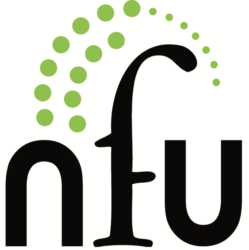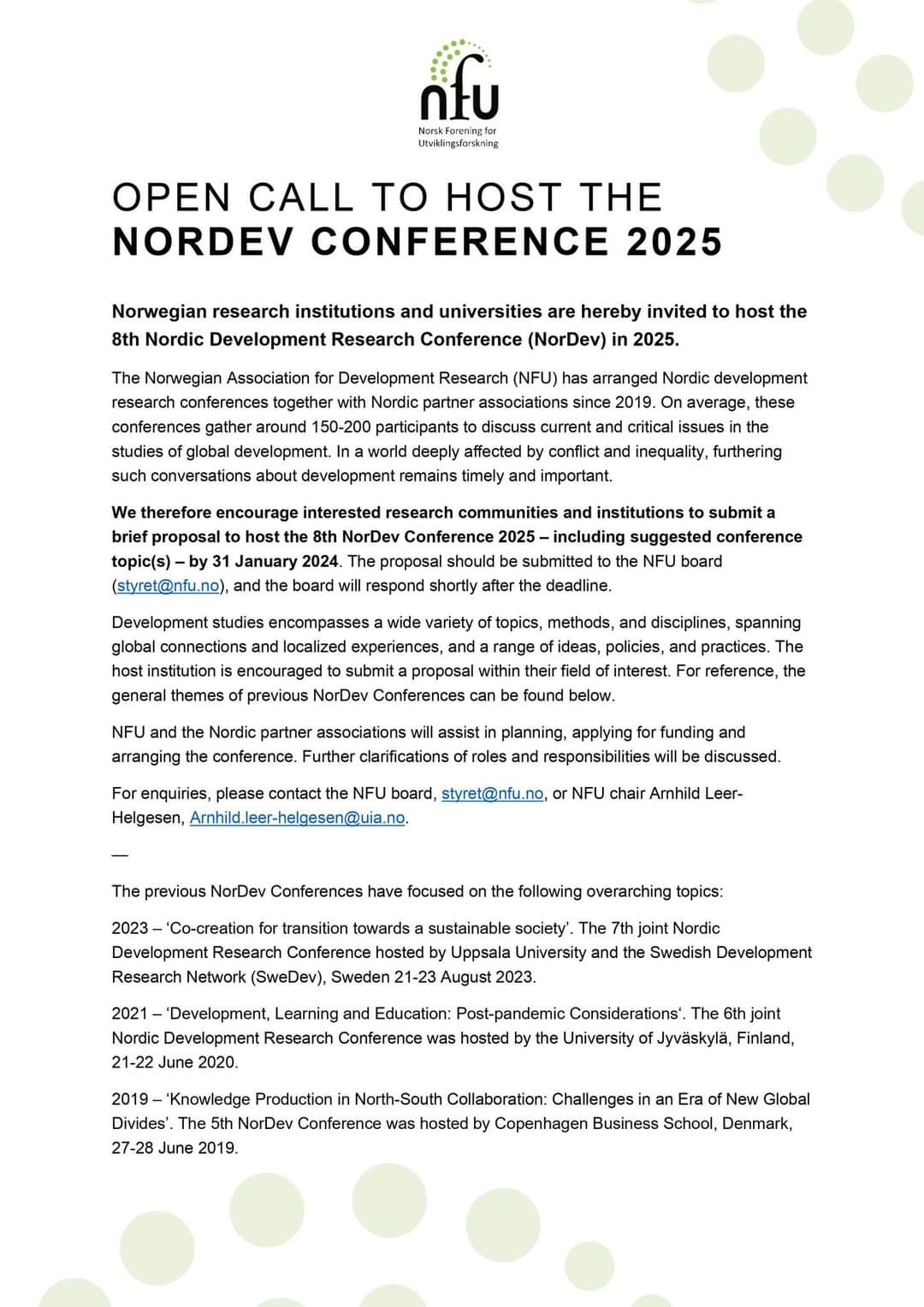Dear NFU members,
We would like to invite you to our General Assembly that will take place on June 14th, 09:30-11:00 Norwegian time, on Zoom.
To access the meeting, please click the link below:
https://uiano.zoom.us/j/63305680092?pwd=zeSCiFADtAsIGXtKEI0dXH0nx1wsgg.1
The agenda for the meeting is as follows:
1. Constitute meeting and approve agenda
- Election of General Assembly Chair and two reporters
- Approval of agenda
2. Board 2024
3. NFU Annual Report 2023
4. Annual plan and budget for 2024
5. Joint Nordic Development Research Conference (NorDev) 2025
6. Incoming business
For a more in-depth look, please look at the documents below:




